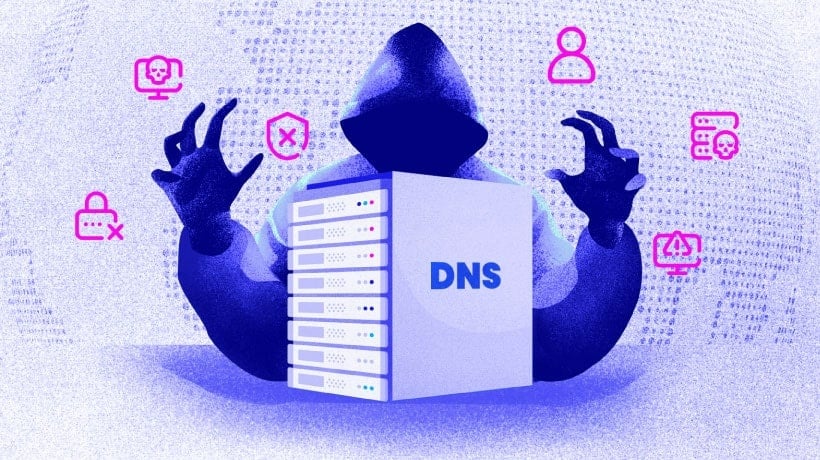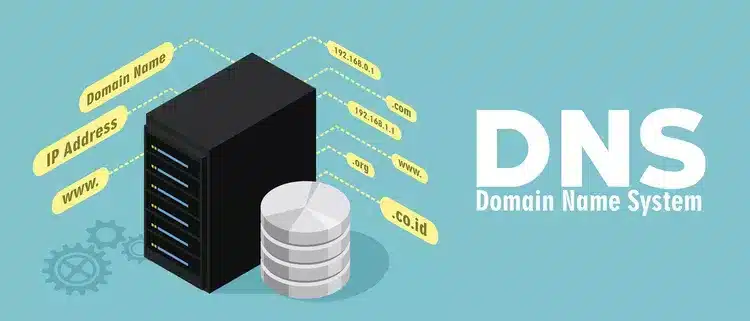A recent DNS registry attack has rocked the decentralized finance (DeFi) sector, targeting several applications and exposing significant vulnerabilities. The attack, which may have exploited a flaw in Squarespace’s DNS registry system, has raised alarms throughout the crypto community. In this crypto update, we delve into the details of the attack, its impact on major cryptocurrencies like Ethereum (ETH) and Bitcoin (BTC), and the broader implications for the security of DeFi platforms.
DNS Registry Exploit: A Wake-Up Call for DeFi Security – Understanding the Attack’s Impact on Ethereum and Bitcoin
The DNS registry attack, identified by Blockaid, specifically targeted five DeFi applications, exploiting what appears to be a vulnerability in Squarespace’s DNS registry system. “The attack allowed the hijacker to redirect traffic from legitimate DeFi apps to malicious sites, compromising user data and funds,” said a spokesperson from Blockaid. This breach highlights the critical need for robust security measures in DNS registries, particularly for platforms handling sensitive financial transactions.
While the immediate focus of the attack was on DeFi applications, the ripple effects were felt across the broader crypto market, including major cryptocurrencies like Ethereum (ETH) and Bitcoin (BTC). As DeFi apps are predominantly built on the Ethereum network, the attack caused temporary disruptions and raised concerns about the overall security of the Ethereum blockchain. “Such vulnerabilities can shake investor confidence in Ethereum and other cryptocurrencies,” noted crypto analyst Jane Doe.
Crypto Community Sounds the Alarm: Expert Reactions to the DNS Registry Attack
The crypto community has been quick to respond to the DNS registry attack, with experts calling for heightened security protocols. “This attack is a wake-up call for all DeFi platforms and their underlying infrastructures,” stated Michael Johnson, a cybersecurity expert. “We need to implement more stringent security measures to protect against such exploits.” His sentiments were echoed by many in the industry, emphasizing the need for continuous vigilance and improvement in security practices.

According to crypto updare, following the attack, there was a noticeable dip in the prices of Ethereum (ETH) and Bitcoin (BTC) as investors reacted to the news. “Market reactions are often driven by fear and uncertainty,” explained Laura Smith, a market analyst. “However, it is essential to remember that the inherent value of these cryptocurrencies remains unchanged despite such incidents.” The temporary decline in prices serves as a reminder of the volatile nature of the crypto market and the importance of security in maintaining investor confidence.
DeFi’s Wake-Up Call: The Importance of Proactive Cybersecurity in the Crypto Industry
In the wake of the DNS registry attack, there is a clear call to action for both DeFi platforms and DNS registry providers. As per analysts, enhanced security protocols, regular audits, and swift responses to potential vulnerabilities are crucial to prevent future attacks. “We must adopt a proactive approach to cybersecurity,” urged blockchain developer John Taylor. “Only then can we ensure the safety and reliability of DeFi applications and the broader crypto ecosystem.”
The attack underscores the interconnectedness of DeFi platforms and major cryptocurrencies like Ethereum and Bitcoin. As the DeFi sector grows, its security challenges will inevitably impact the broader crypto market. Ensuring robust security for DeFi apps is not just a necessity for individual platforms but a critical factor in the overall health and stability of the crypto industry. “The future of DeFi hinges on our ability to secure these platforms against sophisticated attacks,” concluded Jane Doe.
Building a Secure Future: Lessons Learned from the DNS Registry Attack
The recent DNS registry attack on DeFi applications has highlighted significant vulnerabilities within the crypto ecosystem. By exploiting a flaw in Squarespace’s DNS registry system, the attacker was able to disrupt services and compromise user data, raising serious security concerns. The impact on Ethereum and Bitcoin, although temporary, serves as a stark reminder of the importance of robust security measures in maintaining market stability and investor confidence.
As the crypto community rallies to address these challenges, the path forward involves implementing stronger security protocols, conducting regular audits, and fostering a proactive approach to cybersecurity.





























